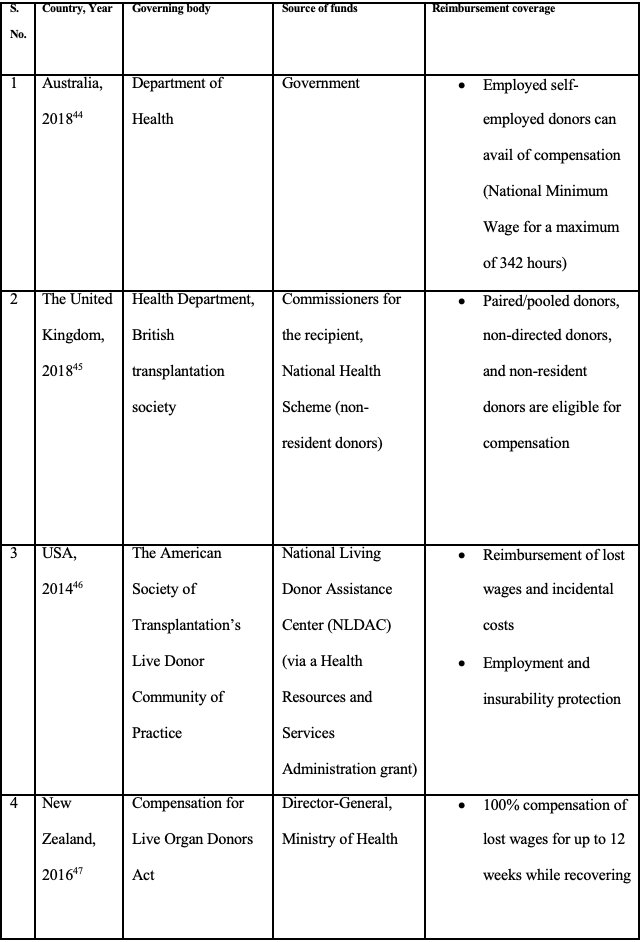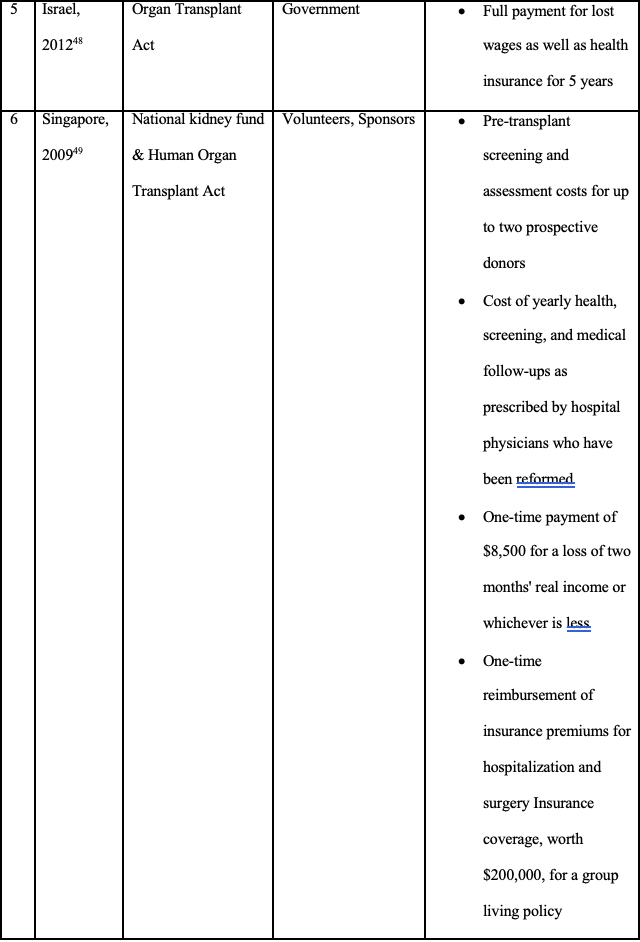Addressing the kidney donor shortage: A critical review of financial incentives for living kidney donation
Mandana Gholami1, Rashed Rowaiee1, David Hickey1, Faisal Shaheen2.
1College of Medicine, Mohammad Bin Rashid University of Medicine and Health Sciences, Dubai, United Arab Emirates; 2Co-Chairman of WHO Task Force for Donation and Transplantation of Organs and Tissues, Dr. Soliman Fakeeh Hospital, Jeddah, Saudi Arabia
Enabling and incentivizing living kidney donation is crucial to address the global shortage of transplantable organs, particularly for patients with end-stage renal disease (ESRD). Implementing incentive systems aims to boost donation rates and reduce time-to-transplant, countering disincentives and providing balance for donors. While cost reimbursement programs cover donation-related expenses, incentive programs offer additional financial compensation, potentially increasing donor numbers. However, ethical, socioeconomic, and religious considerations complicate implementation. The Iranian model of paid donation and the Saudi model of rewarded donation illustrate successful incentivization efforts, albeit with concerns regarding long-term impacts and exploitation. Challenges include ethical dilemmas, socioeconomic disparities, and religious beliefs. Nevertheless, incentivizing living kidney donation can save lives and improve transplantation efficacy, necessitating a regulated system to navigate complexities and promote donation. The present kidney procurement system for transplantation largely relies on living relatives, altruistic donors, or deceased donors. Consequently, patients on the transplant waiting list deal with quality of life impairing chronic illness, dialysis, and the socio-economic and psychological strain related to the uncertainty of waiting. There is an ever-increasing disparity between the demand and supply of transplantable kidneys. This fact triggered the need to review the incentivization of living kidney donors. Live kidney donation is accompanied by numerous disincentives, such as expenses incurred for travel, accommodation, childcare, and medication during donation, loss of income, health, life insurance, and employment opportunities. This review evaluates the potential for incentivization within the system while maintaining ethical considerations, aiming to increase living kidney donation and ultimately save the lives of those in need.


[1] Chronic kidney disease
[2] deceased donors
[3] donor compensation
[4] kidney transplantation
[5] living donors
